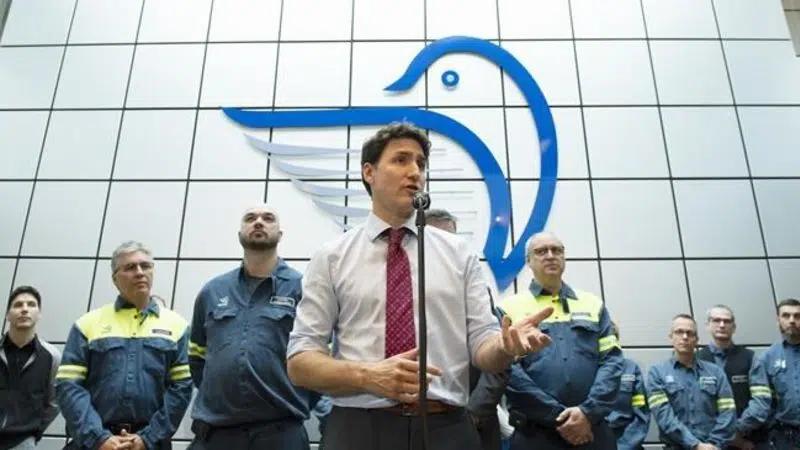
Fight over metals tariffs focused Cdn industries on China: aluminum company CEO
SEPT-ILES, Que. — American tariffs on Canadian aluminum cut into profits but didn’t slow production or hurt employment, says the CEO of the Quebec company whose plant Prime Minister Justin Trudeau visited Tuesday to boast about getting the duties removed.
In fact, Patrice L’Huillier said the trade dispute with the United States has pushed the industry to resist an influx of Chinese metals.
“We will die from the overflow of Chinese aluminum,” said L’Huillier, who runs Aluminerie Alouette in Sept-Iles, Que., about 550 km northeast of Quebec City. “The tariff was not a good thing but to control the metal flow and to understand the source of the metal … is quite a good idea.”


